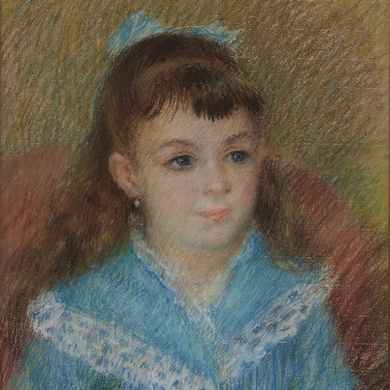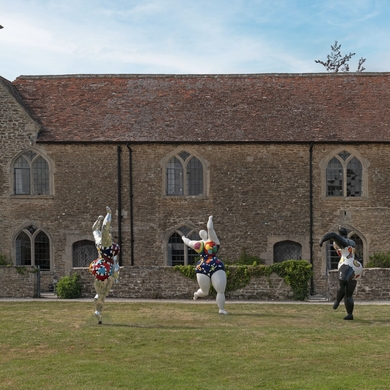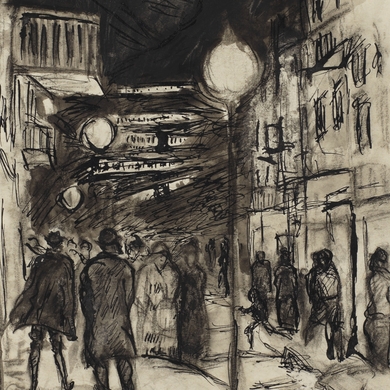“The bright side of life would be the area that I would explore,” wrote René Magritte in 1941, as the Second World War raged on. “By this I mean all the traditional array of delightful things: women, birds, flowers, trees and an atmosphere of happiness.” Once German troops surrendered in Stalingrad, in 1943, Magritte sensed victory ahead and moved into his “solar” style, a swerve into sunshine. He took inspiration from the floating sensuality of Auguste Renoir’s work, and in the next two years created 50 paintings, plus gouaches and drawings, in the new style. In 1946, however, when he presented his manifesto “Surrealism in Full Sunlight” to André Breton, it was rejected outright. Magritte returned to his more mysterious visions. The Musée de l’Orangerie brings together 60 paintings and 40 drawings from this little known period, and lets them blossom alongside Renoir’s masterpieces. —E.C.
Arts Intel Report
Magritte / Renoir: Surrealism in Full Sunlight

When
May 19 – July 19, 2021
Where
Etc
René Magritte, “L’Orient,” 1941 © Alessandro Fiamingo- Art Defender S.r.l. Adagp Images, Paris, 2021.



